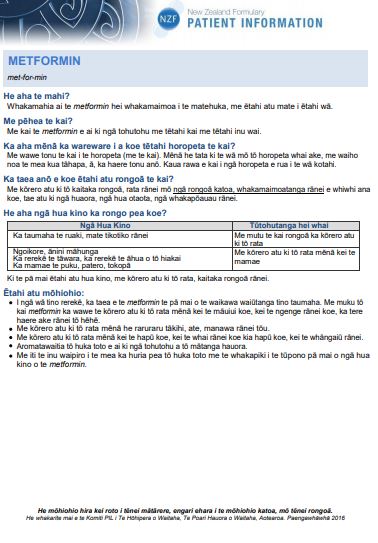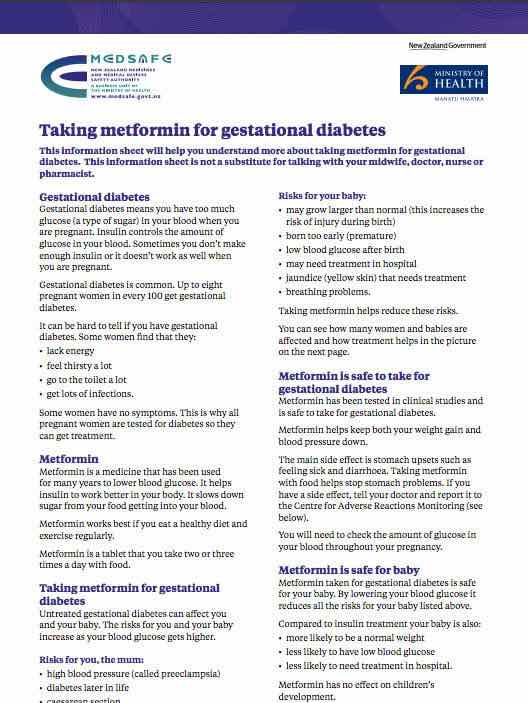Metformin – FAQs
Frequently asked questions about metformin
Key points about metformin for diabetes – FAQs
- The benefits of metformin depends on what you are taking it for.
- Metformin lowers your blood glucose levels by improving the way your body responds to insulin.
- Metformin is used for type 2 diabetes and gestational diabetes, prediabetes, and polycystic ovarian syndrome (PCOS).

The benefits of metformin depends on what you are taking it for:
- Type 2 diabetes and gestational diabetes: Metformin is usually the preferred medicine because it is lowers blood glucose levels and improves HbA1c.
- Prediabetes: Metformin can prevent or delay the onset of type 2 diabetes in people with prediabetes.
- Polycystic ovarian syndrome (PCOS): For women with PCOS, metformin can help with restoring your menstrual cycle and with weight loss, as well as helping control excess body hair (caused by high testosterone levels) and improve fertility.
Read more about how to take metformin.
Metformin lowers your blood sugar levels by improving the way your body responds to insulin. Insulin is the hormone that controls the level of glucose in your blood. Read more about type 2 diabetes.
It is important to continue your healthy diet and exercise while you are taking metformin. Metformin works best when used in combination with good nutrition and regular exercise.
One of the benefits of metformin is that it does not cause weight gain. Some people may lose a small amount of weight.
Your dose of metformin depends on what you are taking it for, and your doctor will be able to tell you how much metformin to take, when you should take it and how you should take it.
The usual starting dose for adults with diabetes is 500 mg 1 or 2 times a day. Some people may start at an even lower dose. Depending on your blood sugar levels, your doctor may increase your dose slowly over a few weeks. This allows your body to get used to the medicine and reduces side effects. The maximum dose is 3 grams daily (in divided doses) but for some people, such as older adults or people with kidney problems, the maximum daily dose should be lower.
Metformin is best taken with or after meals, to reduce side effects such as nausea (feeling sick), stomach upset and diarrhoea (runny poo).
It is best to limit or avoid drinking excessive amounts of alcohol while you are metformin. Drinking alcohol with metformin can affect the control of your diabetes and lead to low blood glucose levels. You are especially at risk of low blood glucose if you are elderly, or have skipped a meal after drinking alcohol. Your doctor may suggest you stop drinking or reduce the amount of alcohol you drink. Read more about diabetes and alcohol.
If you have type 2 diabetes, you will probably need to take metformin for the rest of your life. The benefits of reducing your blood glucose only continue for as long as you take your metformin.
If you stop taking metformin without starting a different diabetes treatment, your blood sugar levels may rise again. If you are taking metformin for gestational diabetes or prediabetes, ask your doctor how long you will need to take it for.
If you are taking metformin alone, and your diabetes is stable, you will probably not need to test your blood glucose with a glucometer. But it is important to check your HbA1c every 3–6 months. You may need a blood glucose test if you are unwell with vomiting or diarrhoea; ask your healthcare provider for advice. Read more about diabetes blood glucose testing and diabetes sick day plan.
If you are unwell and dehydrated from vomiting or diarrhoea, ask your healthcare provider for advice. They may recommend that you stop taking metformin until you are better. Read more about diabetes sick day plan.
Metformin can cause minor side effects such as nausea (feeling sick), stomach upset and diarrhoea (runny poos). These are quite common when you first start taking metformin and usually go away with time. Starting on a low dose and building up gradually, and taking metformin with food can reduce these side effects.
For most people metformin is very safe and is well tolerated. Very rarely people get serious side effects, as described below. Get medical help as soon as possible if you have any of these symptoms:
- Shakiness, dizziness, sweating, hunger, irritability and moodiness – this could be a sign of hypoglycaemia (low blood glucose). Hypoglycaemia is most likely to occur if you delay or miss a meal or snack, drink alcohol, exercise more than usual or can't eat because of nausea or vomiting. It is also likely to happen if you are taking other medicines for diabetes with metformin.
- Skin rash, itching, wheezing or trouble breathing or swallowing, or swelling of the face – this could be an allergic reaction.
- Very bad stomach upset: usually stomach upset (throwing up, and diarrhoea) only happens at the beginning of treatment. If you get this later then this can indicate a serious side effect. Get medical help immediately if the pain is very bad.
Metformin may reduce the absorption of vitamin B12 from the gut leading to vitamin B12 deficiency in some people. You are at greater risk of vitamin B12 deficiency if you are vegan or vegetarian, have excessive alcohol intake, are taking a high dose of metformin, have been taking it for a long time or have stomach problems such as gastritis, Crohn's disease or coeliac disease.
If you are at risk of vitamin B12 deficiency or have symptoms suggesting vitamin B12 deficiency, your doctor will check your vitamin B12 levels and prescribe a supplement if needed. Let your doctor know if you get symptoms of low vitamin B12, such as mouth ulcers, a sore and red tongue, feeling tired, pins and needles and changes in your vision. Read more about vitamin B12 supplements.
While you are taking metformin, your doctor will check your HbA1c levels regularly (every 3–6 months), to assess your blood glucose control. If your HbA1c levels are raised, your doctor may increase your dose of metformin.
You may not have any symptoms of diabetes, so you won't necessarily feel any different when you take metformin. This does not mean that metformin is not working, and it's important to keep taking it.
Type 2 diabetes is a progressive disease, which means that over time your pancreas will produce less insulin and your body will get less efficient at using the insulin. To manage your blood glucose levels and get the best effect, most people need to increase their dose of metformin over time.
You may reach a point where metformin is no longer effective at reducing your blood glucose levels. If this happens, your doctor may add in other medicines such as other tablets for diabetes or insulin. Read more about medicines for type 2 diabetes.
The following links have more information on metformin.
Metformin(external link) (te reo Māori(external link)) New Zealand Formulary Patient Information
Metformin(external link) Medsafe Consumer Information Sheet
Resources
Metformin in te reo Māori(external link)(external link) My Medicines, NZ, 2016
Taking metformin for gestational diabetes(external link)(external link) Medsafe, NZ, 2017 Maori(external link)(external link) Samoan(external link)(external link)
5 questions to ask about your medications(external link) Health Quality and Safety Commission, NZ, 2019 English(external link), te reo Māori(external link)
References
- Metformin(external link) New Zealand Formulary
- Metformin - renal Impairment and risk of lactic acidosis(external link) Medsafe 2015
Brochures

My Medicines, NZ, 2016

Credits: Sandra Ponen, Pharmacist, Healthify He Puna Waiora. Healthify is brought to you by Health Navigator Charitable Trust.
Reviewed by: Angela Lambie, Pharmacist, Auckland
Last reviewed:
Page last updated:





